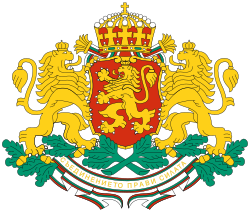Aftermath
Following the election, Petko Karavelov became Prime Minister, leading a government of the DP and the PLP, supported by the NP. These were Bulgaria's three major traditional pro-Russian parties. The government granted an amnesty to many of those involved in the 1900 riots and introduced democratization reforms, including greater press freedom and increased Parliamentary oversight of ministers. However voting rights were taken away from Bulgaria's Muslim and Roma populations, a policy that would remain until the 1914 election. The ongoing financial crisis in the country continued to worsen and Karavelov resigned in December 1901, after Parliament narrowly rejected a proposed French loan by the Paribas bank by four votes, with the deciding votes coming from former Democrats in the new Young Democrats Party. PLP leader and Foreign minister Stoyan Danev was appointed PM and lead a minority government heading into the subsequent 1902 election. [4] [5] [6]
This page is based on this
Wikipedia article Text is available under the
CC BY-SA 4.0 license; additional terms may apply.
Images, videos and audio are available under their respective licenses.
